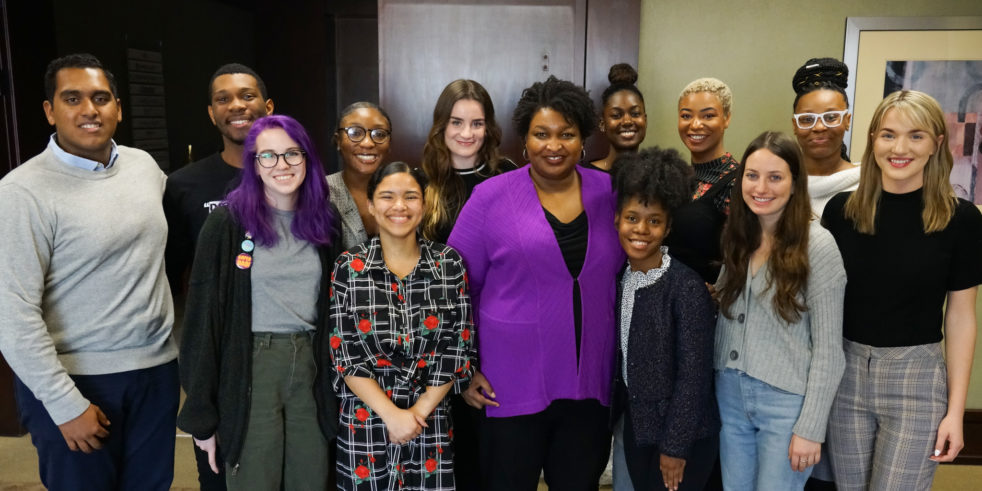After Stacey Abrams ran in Georgia’s previous gubernatorial election, she continues to use her platform. Despite not winning in 2018, she has founded organizations to champion voters’ rights, a fair 2020 census and progressive policies. Her efforts include partnering with university students to instill change.
“I believe that you run for office to do the work, not to have the title. The title just helps you get the work done. And so I thought about what work could I do that would be the most effective and have the highest impact, even if I didn’t have the title of Governor,” Abrams said in an interview with the Technique.
Abrams currently leads Fair Fight, an organization to promote fair elections. Fair Fight has chapters on college campuses across Georgia, including one on Tech’s campus. On Sunday, Jan. 19, student leaders from these campuses met to work personally with Abrams. Twelve of them gathered in a conference room, and Abrams led a question and answer session on how to involve students in efforts for voter education and voter mobilization.
Fair Fight is not the first effort in which Abrams has involved the Georgia Tech student community. Abrams volunteered as a speaker in last fall’s HackGT competition. She also included student interns in her campaign for Governor in 2018.
“The next election I’m interested in is coming, but I didn’t have the right to sit out waiting for the next election,” said Abrams.
“Either I believe in the work or I don’t, and I believe in the work, so I do it.”
Abram’s first step after the election was to file litigation that would change how voters are treated in future gubernatorial elections.
The lawsuit seeks to “bail in” the state of Georgia, putting the state back under purview of the Voting Rights Act, which was created in 1965 to combat racial discrimination.
“We believe if we are bailed in it will absolutely improve life for Georgia voters,” promised Abrams. According to Fair Fight, multiple issues hindered voter turnout and ultimately impacted the outcome of the 2018 election.
Their website states that more than 53,000 voter registrations were left pending leading up to the election, 80% percent of which were from voters of color. Additionally, there were approximately “100,000 votes missing from the 2018 Lieutenant Governor’s race. Because of faulty voting machines, voters — especially in communities of color — had their votes go unrecorded.”
In a broken system, Abrams knows that many students are unmotivated to get involved, or even to simply vote.
“I was young once, not that long ago, and the sense of disassociation and the lack of faith and trust is not new,” she said. “I’m not an optimist — I’m a realist. The reality is very little happens when you give up.
The most insidious part of voter suppression is that it is designed to compel you to just abandon the process. But if the process didn’t matter — if your voices didn’t matter — they wouldn’t be working so hard to stop them from being heard.”
Abrams ended with a reminder that in a democracy, active participation is necessary to not become victims of the system. She wants young people to vote because she believes older voters “need the help” to enforce justice in society. They can help by joining the conversation.
“Regardless of their status, race, gender or ethnicity in our body politic right now, [young] voices are a minority voice,” said Abrams. “The louder their voices are, the more change happens. Young voices matter the most when they actually pick people to represent people in government who are willing to actuate change.”
